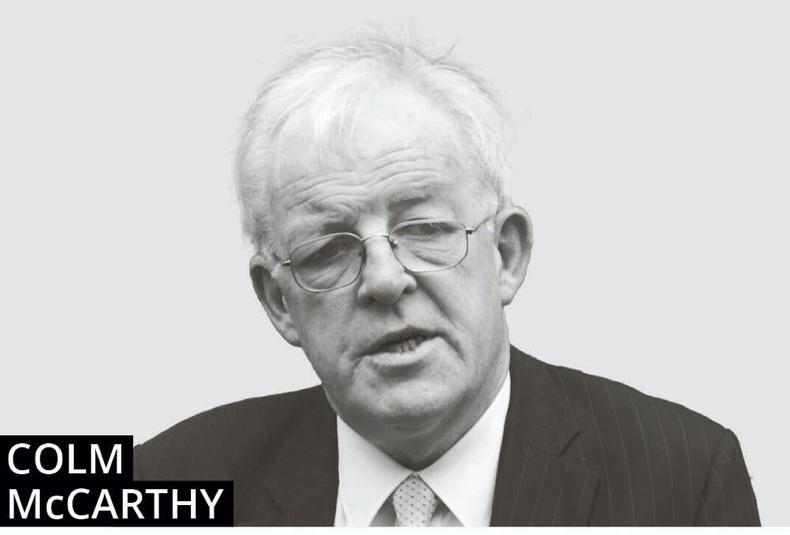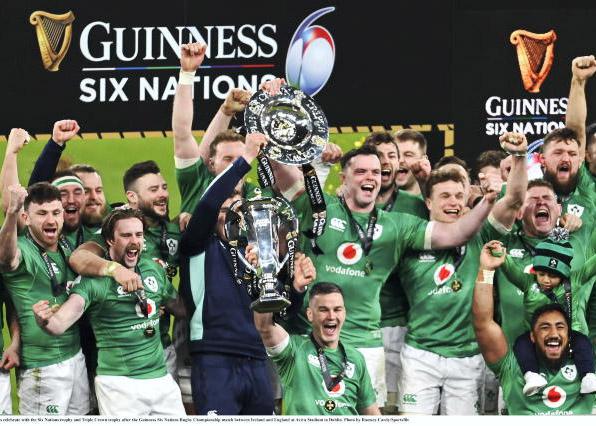For six marks, which British politician made the following remarks on Channel 4 television during the referendum campaign, in April 2016?
“So, if we do vote to leave the European Union, we risk bringing the development of the single market to a halt. We risk a loss of investors and businesses to remaining EU member states driven by discriminatory EU policies and we risk going backwards when it comes to international trade.”
The speaker, urging a vote to Remain in the EU, continued: “And look at the figures. We export more to Ireland than we do to China, almost twice as much to Belgium as we do to India and nearly three times as much to Sweden as we do to Brazil. It is not realistic to think we could just replace European trade with these new markets.”
The speaker was the current UK prime minister Theresa May. Her conversion to the Eurosceptic cause and to a hard form of Brexit, followed the 52% Leave vote, David Cameron’s resignation and her selection as leader of the Conservative party. But the referendum vote changed none of the economic realities. Between direct trade with the EU-27 and with countries covered by EU trade agreements, almost two-thirds of Britain’s exports are on the line once the country finally loses its existing trade access.
If Theresa May’s deal goes through, there will be a transition period (extendable) up to the end of 2020 during which nothing will change. From that point onwards, the UK will be on its own, in a trading relationship with its essential markets, which has yet to be negotiated. It will involve a close link to the customs union for the entire UK, courtesy of the Northern Ireland backstop, but the withdrawal agreement tells us little more.
Withdrawal process
The German magazine Der Spiegel last week interviewed Sir Ivan Rogers, the UK’s ambassador to the EU who resigned in frustration at the mishandling of the withdrawal process in January 2017. They asked him how long the talks on a new deal with the EU will take. “Much longer than many people think. The planned trade deal is not ‘the easiest in human history,’ as [UK trade minister] Liam Fox has claimed. It’s not easy to solve for one simple reason: This is the first trade deal in history where partners are seeking to get further apart. All trade deals I’ve ever worked on were about getting closer together and dismantling barriers to trade. We are now deliberately re-erecting barriers, seeking a thinner relationship than the one we have. We like the free trade with Europe, but not the European institutions. Well, that’s not on offer. That’s why the next step of the negotiations will be conflictual again.”
If the UK parliament finally backs May’s deal, there will be relief in Ireland, both because it ensures 21 months of trade on an uninterrupted basis and because it delivers a guarantee on the Northern Ireland border. The relief will be short-lived if Rogers is to be believed.
There is still no clear vision in the UK about the nature of the long-term relationship it desires with the EU and the obsession about ending freedom of movement ensures that it cannot involve continuing membership in the single market.
The Republic’s trade with Britain will be on whatever terms apply to the EU-27 as a whole, with whom the negotiations will be “conflictual”.
Should the UK change tack and opt for something close to single market membership, the political system then must deal with the unanswerable “Why bother?” question. What is the point in leaving the EU at all if the constraints of both customs union and single market must indefinitely be endured? All that happens is the loss of influence over EU policy, truly the “vassal state” outcome of Brexiteer nightmares.
The expectation that Brexit would deliver exciting new trading opportunities outside Europe was always a delusion, as Mrs May herself seemed to understand before the referendum.
There is no crock of undiscovered gold in far Cathay, no El Dorado in trading with Latin America. There will be no easy trade deal with the United States either – the US trade negotiator, Robert Lighthizer, has just released a set of negotiating guidelines which include unacceptable requirements for access to the British market favourable to the US farm lobbies.
The only tangible benefit, if such it be, is the ending of free movement into Britain from continental Europe, to which so many voters appear to attach great importance.
According to Ivan Rogers, this is also the private conviction of Mrs May, who has settled for estrangement from the single market precisely because it permits an end to uncontrolled immigration into the UK from continental Europe. There could be a great cost for xenophobia.
Read more
UK plans for agri trade after Brexit disastrous for Ireland
Conference to address global trade challenges
For six marks, which British politician made the following remarks on Channel 4 television during the referendum campaign, in April 2016?
“So, if we do vote to leave the European Union, we risk bringing the development of the single market to a halt. We risk a loss of investors and businesses to remaining EU member states driven by discriminatory EU policies and we risk going backwards when it comes to international trade.”
The speaker, urging a vote to Remain in the EU, continued: “And look at the figures. We export more to Ireland than we do to China, almost twice as much to Belgium as we do to India and nearly three times as much to Sweden as we do to Brazil. It is not realistic to think we could just replace European trade with these new markets.”
The speaker was the current UK prime minister Theresa May. Her conversion to the Eurosceptic cause and to a hard form of Brexit, followed the 52% Leave vote, David Cameron’s resignation and her selection as leader of the Conservative party. But the referendum vote changed none of the economic realities. Between direct trade with the EU-27 and with countries covered by EU trade agreements, almost two-thirds of Britain’s exports are on the line once the country finally loses its existing trade access.
If Theresa May’s deal goes through, there will be a transition period (extendable) up to the end of 2020 during which nothing will change. From that point onwards, the UK will be on its own, in a trading relationship with its essential markets, which has yet to be negotiated. It will involve a close link to the customs union for the entire UK, courtesy of the Northern Ireland backstop, but the withdrawal agreement tells us little more.
Withdrawal process
The German magazine Der Spiegel last week interviewed Sir Ivan Rogers, the UK’s ambassador to the EU who resigned in frustration at the mishandling of the withdrawal process in January 2017. They asked him how long the talks on a new deal with the EU will take. “Much longer than many people think. The planned trade deal is not ‘the easiest in human history,’ as [UK trade minister] Liam Fox has claimed. It’s not easy to solve for one simple reason: This is the first trade deal in history where partners are seeking to get further apart. All trade deals I’ve ever worked on were about getting closer together and dismantling barriers to trade. We are now deliberately re-erecting barriers, seeking a thinner relationship than the one we have. We like the free trade with Europe, but not the European institutions. Well, that’s not on offer. That’s why the next step of the negotiations will be conflictual again.”
If the UK parliament finally backs May’s deal, there will be relief in Ireland, both because it ensures 21 months of trade on an uninterrupted basis and because it delivers a guarantee on the Northern Ireland border. The relief will be short-lived if Rogers is to be believed.
There is still no clear vision in the UK about the nature of the long-term relationship it desires with the EU and the obsession about ending freedom of movement ensures that it cannot involve continuing membership in the single market.
The Republic’s trade with Britain will be on whatever terms apply to the EU-27 as a whole, with whom the negotiations will be “conflictual”.
Should the UK change tack and opt for something close to single market membership, the political system then must deal with the unanswerable “Why bother?” question. What is the point in leaving the EU at all if the constraints of both customs union and single market must indefinitely be endured? All that happens is the loss of influence over EU policy, truly the “vassal state” outcome of Brexiteer nightmares.
The expectation that Brexit would deliver exciting new trading opportunities outside Europe was always a delusion, as Mrs May herself seemed to understand before the referendum.
There is no crock of undiscovered gold in far Cathay, no El Dorado in trading with Latin America. There will be no easy trade deal with the United States either – the US trade negotiator, Robert Lighthizer, has just released a set of negotiating guidelines which include unacceptable requirements for access to the British market favourable to the US farm lobbies.
The only tangible benefit, if such it be, is the ending of free movement into Britain from continental Europe, to which so many voters appear to attach great importance.
According to Ivan Rogers, this is also the private conviction of Mrs May, who has settled for estrangement from the single market precisely because it permits an end to uncontrolled immigration into the UK from continental Europe. There could be a great cost for xenophobia.
Read more
UK plans for agri trade after Brexit disastrous for Ireland
Conference to address global trade challenges









SHARING OPTIONS